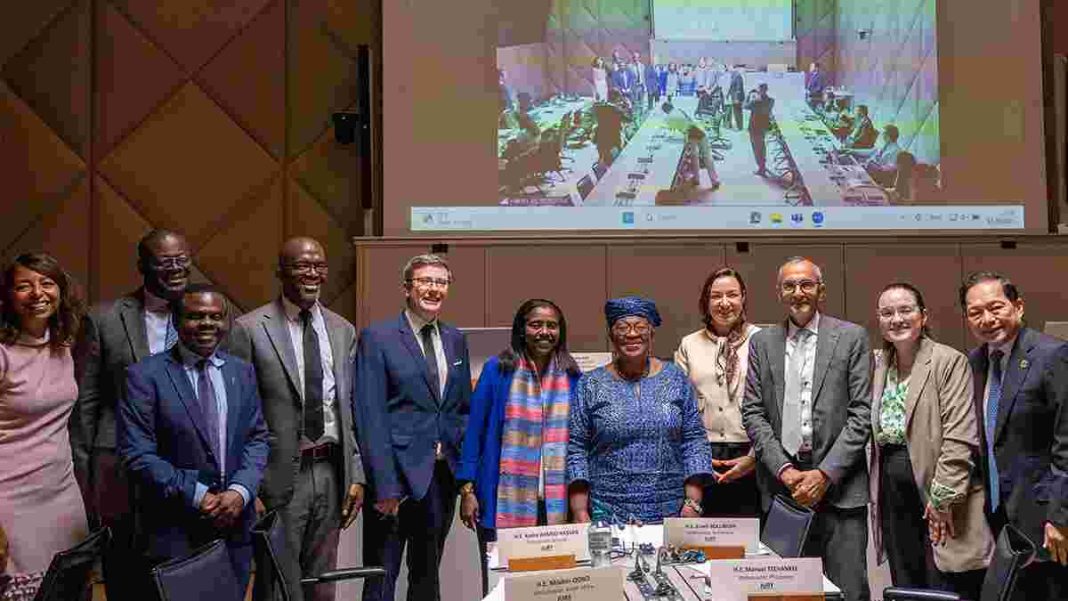The WTO, in partnership with Geneva Trade Platform and CropLife International, hosted the finals of its first global policy hackathon on trade and food security on 16 September. The competition brought together 58 student teams from over 30 countries, challenging them to “hack” solutions for how international trade rules can contribute to ending hunger. Over two days, the teams produced a wide range of creative proposals, from digital traceability systems for food products and food safety knowledge hubs to infrastructure financing, biofuels strategies and new forms of agricultural negotiating coalitions.
WTO hackathon showcases youth proposals on trade and food security
WTO hackathon showcases youth proposals on trade and food security
A shortlist of three finalists competed in Geneva before an expert jury of five WTO ambassadors — from Chile, Djibouti, the Philippines, South Africa and Switzerland. The finalists presented their ideas virtually to the jury and an audience at the WTO, with support from CropLife International, which generously sponsored the prizes. Director-General Ngozi Okonjo-Iweala opened the event, stressing that “trade and food security are inseparable” and that the hackathon showed “what young people expect of the WTO – an institution that is ambitious, creative and responsive to people’s needs.”
The three finalist teams reflected the global character of the hackathon, bringing together a cohort of students from more than ten countries.
“Global Grains”, with students from the European University Institute in Fiesole, Italy, and the Graduate Institute in Geneva, presented a “Harvest-to-Market Facilitation Pathway” to reduce post-harvest losses in Africa through improved storage and trade facilitation.
“Spice Pacific”, with students from the S. Rajaratnam School of International Studies and Nanyang Technological University in Singapore, proposed redirecting food lost in trade and supply chains into sustainable biofuel production.
“Agro-Strategos”, a team from Nanjing Agricultural University in China, focused on strengthening WTO disciplines to address sudden impediments to food trade during crises, aiming to make grain flow more predictably for vulnerable importing countries.
The jury awarded first place to Global Grains, second place to Spice Pacific, and third place to Agro-Strategos. In her closing message, the Director-General congratulated all participants for their extraordinary breadth of ideas, noting that the competition underlined both the urgency of tackling food insecurity and the importance of an evolving and effective multilateral trading system.
Source: https://www.wto.org/english/news_e/news25_e/dgno_17sep25_e.htm
© 2025, World Trade Organization


